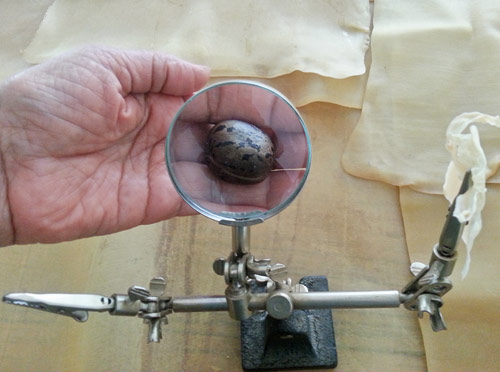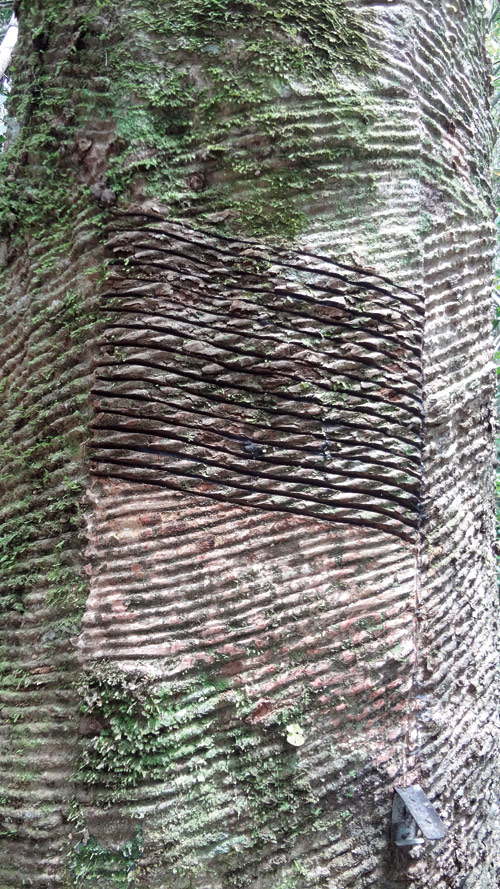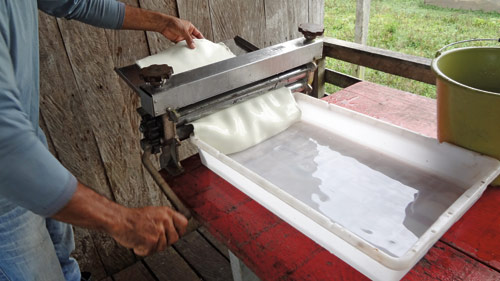2014
Sheela Gowda
Rubber and iron, thread, needles and pigment, incense and ash, cow dung, car bumpers and hair – everyday materials figure prominently in the sculptural practice of Sheela Gowda. In her hands these elements are woven together to create large-scale, three-dimensional compositions, with lines and colour that often envelop space or the viewer. At times the lines meander, as in the woven ropes of hair or thread. At others they are rigid and cutting, as in the plumbing-pipes-cum-speakers constructed into a grid across the gallery, or the slender, tall limbs made of recycled furniture. On closer inspection, however, Gowda’s lines reveal themselves to be more than mere abstract forms: each of her installations is preoccupied with the qualities of specific materials as much as with the labours associated with them – the how, by and for whom they are handled and put to use.


For the 31st Bienal, Gowda has played with the elasticity of natural rubber against the rigidity of reclaimed iron furniture and window grills, as if stretching a new skin over the extant skeletons. Both materials are also the product of resilient micro-economies referencing their own history and also linked to the economic and political history of the country. The extraction of latex from the rubber tree was the driver of Brazil’s booming economy in the late nineteenth century, with disastrous effects for both the Amazonian forest

and its indigenous populations. With the export of rubber tree seeds to South-Asia in the early 1900s and the commercialisation of synthetic rubber in the 1960s, however, rubber prices plummeted, forcing locals to turn to more profitable but often less environmentally safe activities. For Those of Whom, Gowda has worked with cooperatives of seringueiros – rubber tappers – from the state of Acre, in northwestern Brazil, whose harvesting contributes to prevent further deforestation of the Amazonia. Reclaimed from the urban jungle that is São Paulo, the iron structures are likewise gathered by companies that collect urban waste from demolition sites and put them back into circulation. – HV